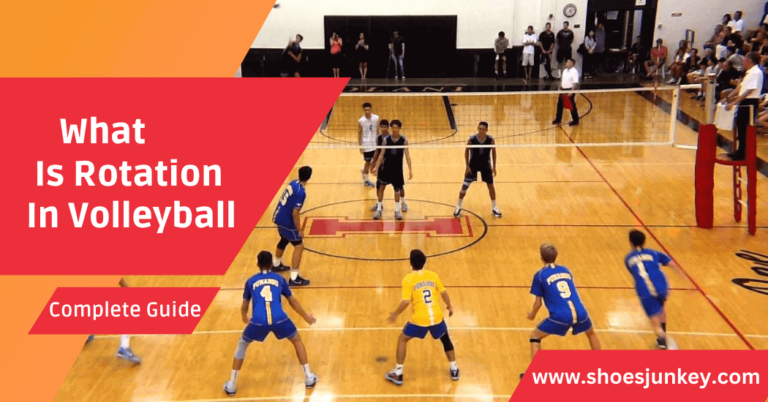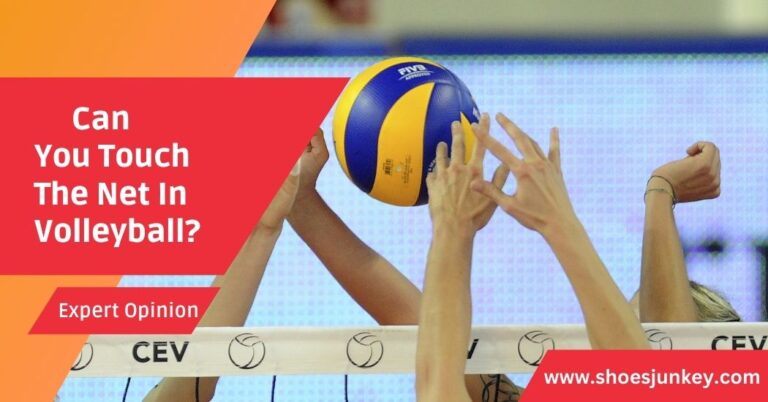How To Become A Good Volleyball Player?
Becoming a skilled volleyball player requires mastering a variety of techniques, building physical fitness and developing mental toughness.
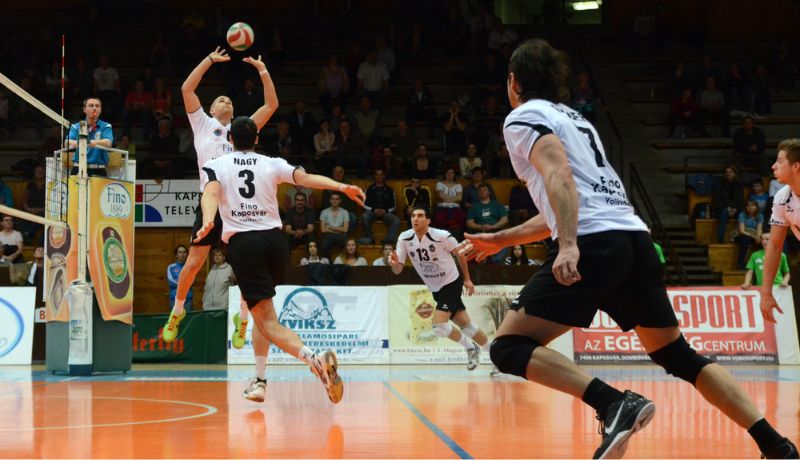
One of the most important aspects of becoming a skilled volleyball player is mastering various techniques. Each technique requires precise body movements and coordination to be executed correctly.
In this article, we will outline essential skills, strategies and advice to help you along your journey towards becoming a successful volleyball player.
Understanding the Game, Physical Fitness and Conditioning
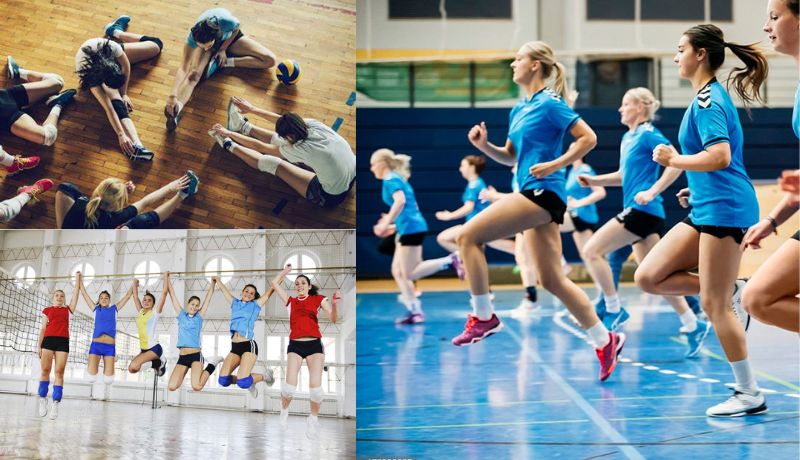
Before stepping onto the court, it’s crucial to have a solid understanding of volleyball’s basic rules and regulations, as well as the different positions on the court and their respective roles. Teamwork plays a vital role in successful gameplay, so it’s essential to grasp how individual player positions contribute to the team’s overall performance.
Volleyball players need to be in top physical condition. Develop an exercise routine that targets strength, agility and endurance. Incorporate sport-specific exercises and training routines, such as plyometrics and sprints, to build explosive power on the court. Prioritize injury prevention strategies like stretching, warm-ups and strengthening weak muscles to ensure a long-lasting and injury-free playing career.
Mastering Basic Skills
Mastering basic skills is a fundamental part of becoming a proficient volleyball player. These skills include serving, passing, setting, hitting and blocking. Let’s dive into each of these essential skills.
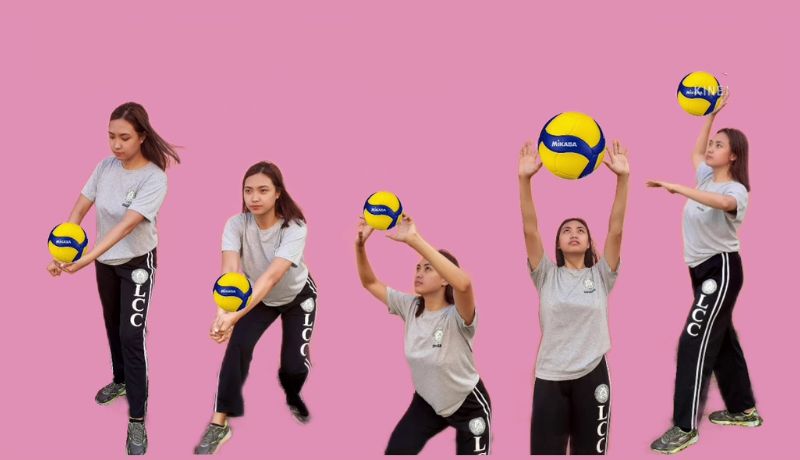
- Serving is the first offensive action in a volleyball game and it sets the tone for your team’s attack. There are two primary types of serves: underhand and overhand. As a player, you should be comfortable with both and it’s beneficial to work on accuracy, power and placement during practice sessions.
- Passing, or bumping, is the act of receiving the ball and correctly directing it to the setter. It is a foundational skill that all players should master. The key to successful passing is proper footwork, body position and utilizing your platform – the area from your wrists to your elbows – to direct the ball.
- Setting is typically the second touch after the ball crosses the net and a good setter is much like a quarterback in football. They must be able to accurately place the ball for their attackers, requiring excellent touch, timing and court awareness.
- Hitting, or spiking, is the act of aggressively sending the ball over the net to the opponent’s court. Power and precision are key elements of a successful hit, but the technique is of equal importance, particularly when it comes to the approach, jump and arm swing.
- Blocking is the first line of defense against a spike from the opposing team. Effective blocking involves good footwork, timing and hand positioning. It’s not just about stopping the ball, but also directing it to an advantageous position on your side of the court.
Tactical Awareness for a Good Volleyball Player
Developing an understanding of your opponent’s strategies and tendencies is a crucial aspect of volleyball. By observing their patterns and habits, you can predict their moves and adjust your gameplay to counteract their tactics. Whether it’s identifying a weak passer or exploiting a habitual spike direction, this information can give your team a strategic edge.
Court awareness and positioning are also vital in the game. An excellent player always knows their location on the court, the position of their teammates and the location of the ball. Good positioning can help you react faster, make better plays and prevent the opponent from scoring points easily.
Communication and coordination among team members is the backbone of any successful volleyball team. It helps eliminate confusion, ensures everyone is on the same page and contributes to fluid gameplay. Whether it’s calling for a ball, alerting about impending attacks, or coordinating defense, effective communication can hugely impact a team’s performance.
Mental Toughness and Focus
Develop mental resilience to overcome setbacks or mistakes during gameplay. Maintain focus and handle pressure by utilizing techniques like deep breathing or visualization. Embrace a growth mindset and remember that learning from failures contributes to overall improvement.
It’s also essential to maintain a positive attitude, both on and off the court. Not only does it improve individual performance, but it also contributes to a healthier team dynamic.
Teamwork and Communication
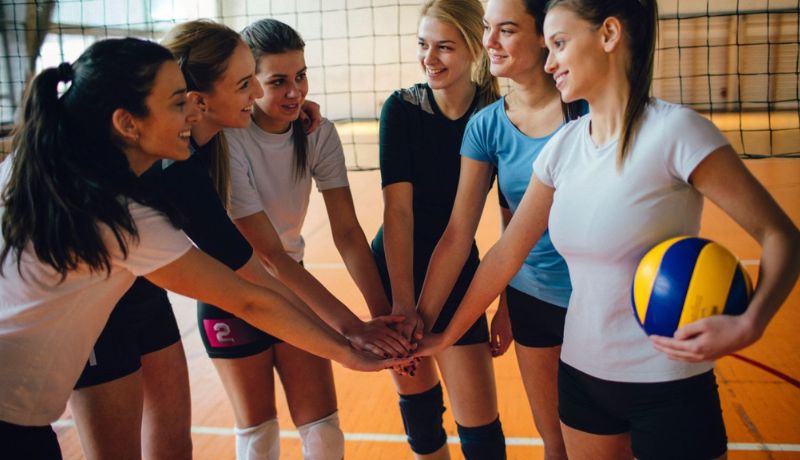
Teamwork and communication are the lifeblood of any successful volleyball team. They underpin coordination on the court, ensuring smooth gameplay and synergistic effort among players.
- Teamwork is vital in a volleyball game; each player has a specific role to perform, but the overall outcome hinges on the collective effort of the team. Players need to trust one another, work cohesively and contribute to the team’s objectives selflessly. A team with excellent teamwork can often outperform a group of individual stars who do not work well together.
- Communication, both verbal and non-verbal, is crucial to express intentions, alert teammates and strategize during gameplay. Calling out for balls, alerting about impending attacks and coordinating defense are examples of effective communication on the court. Moreover, good communication enhances understanding and fosters a stronger bond among teammates, which can lead to improved performance and a more enjoyable playing experience.
In essence, without teamwork and effective communication, even the most talented volleyball players may struggle to win games. Hence, honing these aspects is as important as improving technical volleyball skills. As a player, never underestimate the power of being a team player and communicating effectively with your teammates. Remember, it takes an entire team to achieve success in volleyball.
Therefore, always strive for continuous improvement in both individual skills and teamwork to reach your full potential as a volleyball player. Keep practicing, stay determined and have fun playing this beautiful sport!
Investing in the Right Equipment
Before purchasing any volleyball equipment, it’s crucial to consider some key factors to ensure you get the right gear. Here is a handy checklist to guide your investment:
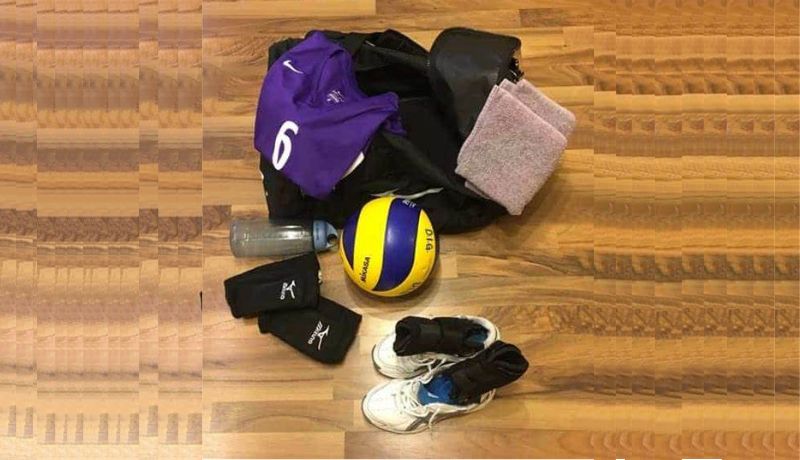
- Volleyball: Ensure the ball is of standard size and weight. It should be soft and comfortable to handle, yet durable enough to withstand rigorous play. Consider picking volleyballs approved by volleyball organizations for assurance of quality.
- Footwear: Invest in shoes specifically designed for volleyball to ensure they provide the necessary grip, cushioning and ankle support. The right shoes can drastically improve your agility and decrease the risk of foot and ankle injuries.
- Knee Pads: These should offer excellent protection and fit comfortably without restricting movement. Check for breathability and durability as well.
- Jersey & Shorts: They should be lightweight, breathable and comfortable. Pick the right size that allows unrestricted movement.
- Net System: If you’re setting up a court, invest in a durable net system that is easy to set up and take down. Check that the height is adjustable to cater to different skill levels.
- Other Accessories: Depending on your role in the team, you may need additional accessories like a setting trainer or libero bands. Ensure these are of good quality and meet your specific needs.
Remember, the right equipment can enhance performance, improve safety and uplift your overall volleyball experience. Always prioritize quality over cost to ensure long-term benefits.
Conclusion
Becoming a good volleyball player takes time, dedication and hard work. It’s not something that can be achieved overnight, but with consistent practice and the right mindset, anyone can excel in this sport.
Remember to focus not only on physical skills but also on mental toughness and teamwork. Volleyball is a team sport and working together with your teammates is essential for success on the court. Keep an open mind and always be willing to learn from others, whether it’s your coaches or fellow players.
As famous coach John Wooden once said, “It’s about the journey, not just the destination.” So keep playing, keep learning and never stop striving towards your full potential as a volleyball player.


